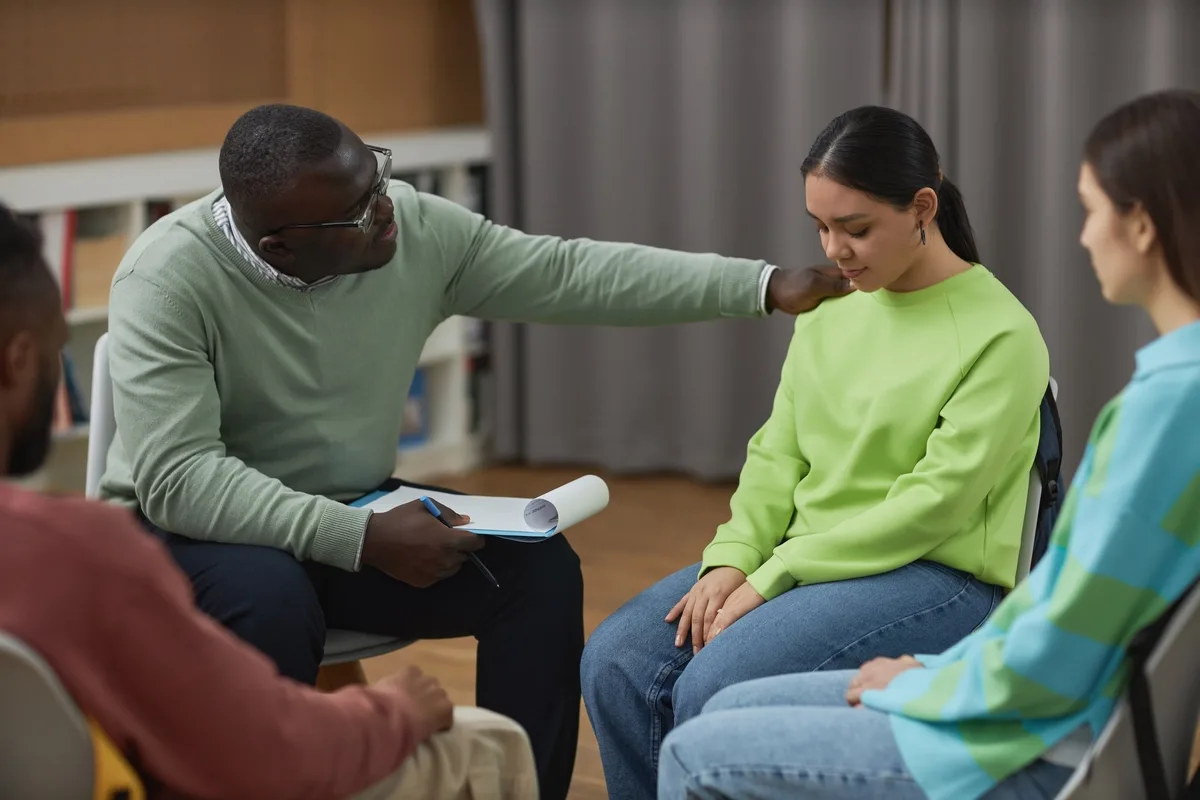24/7 Helpline:
(866) 899-221924/7 Helpline:
(866) 899-2219
Learn more about PTSD Treatment centers in Elysian
PTSD Treatment in Other Cities

Other Insurance Options

United Health Care

UnitedHealth Group

BlueShield

Absolute Total Care

Access to Recovery (ATR) Voucher

Group Health Incorporated

Premera

CareFirst

Regence

Carleon

Providence

EmblemHealth

Evernorth

AllWell

ComPsych

Ambetter

MHNNet Behavioral Health

Kaiser Permanente

Horizon Healthcare Service

Health Net











